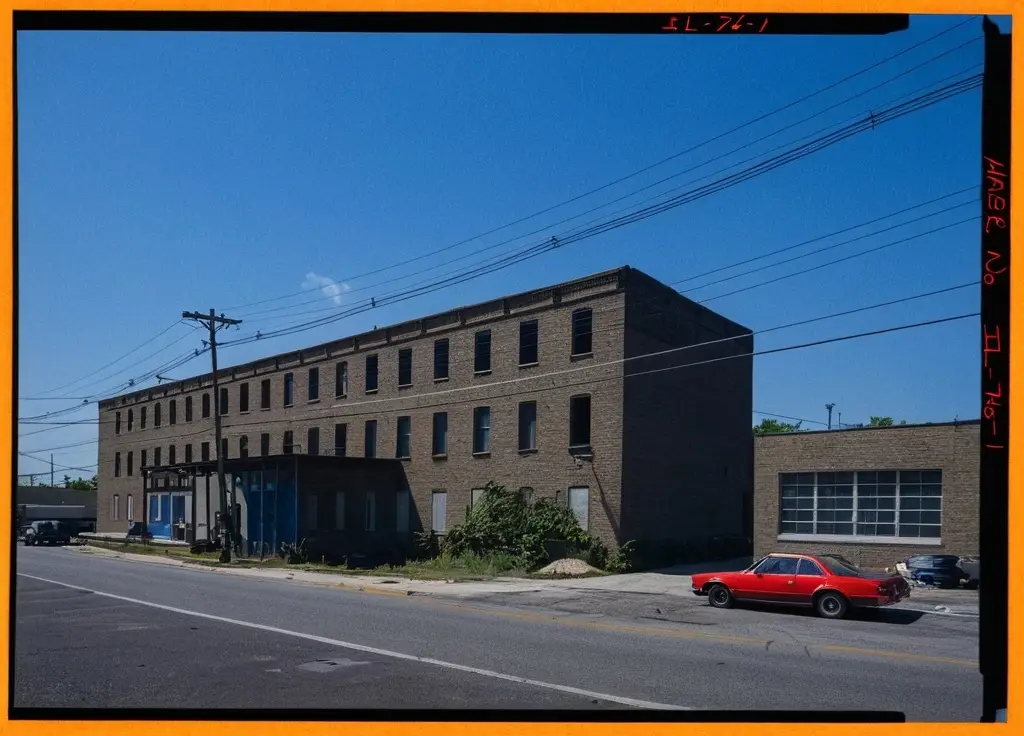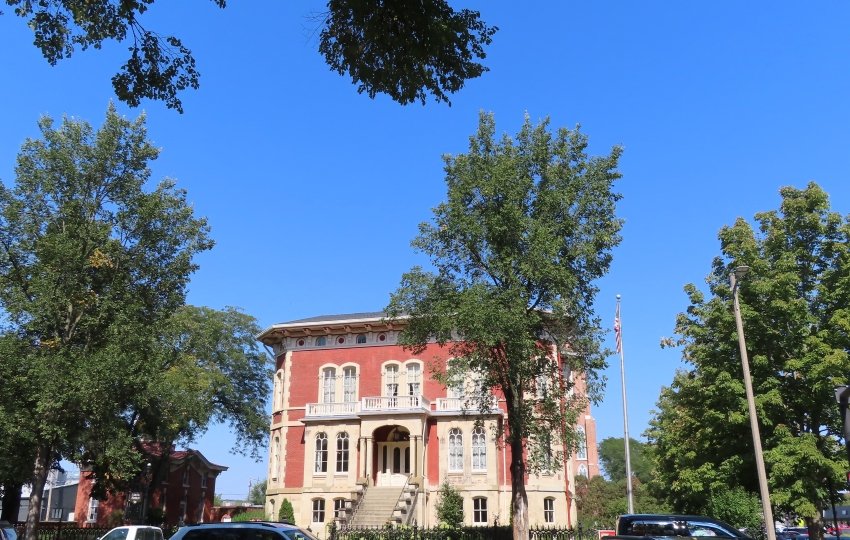The Founding of Hamilton Agricultural Implement Manufacturing Company
The Hamilton Agricultural Implement Manufacturing Company was established in 1858 in Ottawa, Illinois, by a group of enterprising farmers and entrepreneurs led by Jonathan Hamilton. With a vision to enhance agricultural production efficiency, the company aimed to design and manufacture products that catered to the practical needs of farmers in the region. The founding team recognized that the existing farming methods could be improved through innovative machinery and equipment, setting the stage for a new era in agricultural practices.
In its early years, the company focused on producing a variety of agricultural implements that were essential for enhancing productivity on farms. Among the initial offerings were plows, harrows, and cultivators, which were meticulously designed to withstand the demanding conditions of the agricultural landscape. The durability and functionality of these implements quickly gained recognition, allowing Hamilton Agricultural Implement Manufacturing Company to build a solid reputation in the industry.
One of the key innovations introduced by the company during this period was the development of multi-functional implements that combined several farming tasks into a single machine. This advancement not only reduced the amount of equipment a farmer needed but also optimized labor efficiency. The designs often incorporated user-friendly features that appealed to the growing number of farmers looking to modernize their practices.
Throughout its formative years, the Hamilton Agricultural Implement Manufacturing Company marked significant milestones, including the expansion of its production facilities and the diversification of its product line. By integrating advanced technologies into their manufacturing processes, the company positioned itself as a leader in agricultural implement production within the local economy. As the demand for more sophisticated farming equipment continued to rise, the company adapted accordingly, paving the way for its future successes and contributions to the agricultural sector in Illinois and beyond.
Growth and Development through the Years
The Hamilton Agricultural Implement Manufacturing Company, established in Ottawa, Illinois, experienced significant growth and transformation throughout the early to mid-20th century. In its formative years, the company focused on producing essential agricultural tools, laying a foundation for its future advancements. By the 1920s, Hamilton expanded its product line to include a wider variety of implements tailored to meet the evolving demands of farmers, reflecting the changing landscape of American agriculture.
Technological advancements played a crucial role in the company’s trajectory. The introduction of mechanization during this period allowed Hamilton to enhance its production capabilities, resulting in increased efficiency and reduced costs. The integration of innovative manufacturing techniques not only improved the quality of its products but also positioned Hamilton as a leader in agricultural implement production. This commitment to innovation enabled the company to respond effectively to the rapid changes in farming practices, which were increasingly relying on modern machinery.
The impact of major world events, such as the Great Depression and the two World Wars, shaped Hamilton’s strategies and operations. During the Great Depression, the company faced significant challenges but adapted by diversifying its offerings and catering to the financial constraints of farmers. The World Wars further propelled the company into producing specialized equipment for military use, showcasing its versatility and reinforcing its importance to the national economy during tumultuous times.
As the mid-20th century unfolded, Hamilton Agricultural Implement Manufacturing Company solidified its reputation as a cornerstone of agricultural innovation in the Ottawa region. Its ability to navigate economic hardships while adapting to technological changes underscored its role in promoting sustainable farming practices. The dedication to quality and innovation established a legacy that would continue to influence agricultural practices in the Midwest and beyond.
Community Impact and Legacy
The Hamilton Agricultural Implement Manufacturing Company has left a lasting imprint on the Ottawa, Illinois community, significantly contributing to both its economic vitality and social fabric. Since its inception, the company has been instrumental in creating numerous job opportunities, thereby enhancing the livelihoods of many families in the area. The presence of a stable employer has drawn talent and encouraged growth, establishing a sense of community stability that has persisted over the decades.
The economic stimulation fostered by Hamilton Agricultural Implement extends beyond mere job creation; it has also spurred the growth of ancillary businesses that benefit from the agricultural sector. Many local suppliers and service providers have flourished due to their relationship with the company, deepening the interconnectedness of the local economy. Farmers in the region have also reaped the benefits of innovative agricultural implements produced by Hamilton, which have significantly improved efficiency and productivity. This support has helped local farmers thrive, ensuring that agricultural practices in Ottawa remain vital and competitive.
Testing the reach of Hamilton’s impact, testimonials from former employees and community members illustrate the profound role the company has played in local life. For many, Hamilton was more than an employer; it was a cornerstone of the community, participating in and sponsoring various local events, enhancing social cohesion. The company’s philanthropic endeavors have further reinforced its legacy, as it actively supported initiatives aimed at improving local infrastructure and community welfare.
As a pillar of support, Hamilton Agricultural Implement Manufacturing Company has cultivated not only agricultural advancements but also a robust community spirit. The cooperative spirit cultivated by the company has paved the way for a thriving environment, where both economic and social contributions have left an indelible mark on Ottawa, affirming the essential role the company played in the overall development of the region.
The Decline and Closure of Hamilton Agricultural Implement Manufacturing Company
The Hamilton Agricultural Implement Manufacturing Company, once a pillar of the agricultural machinery industry in Ottawa, Illinois, faced a series of challenges that ultimately led to its decline and closure. In the later decades of the 20th century, significant transformations in agricultural practices began to take root. Farmers increasingly gravitated towards larger, more efficient machinery, which required innovations that Hamilton struggled to keep pace with. The market dynamics shifted as competition grew from both regional manufacturers and large-scale corporations that were capable of producing equipment at reduced costs through mass production.
In addition to the rapid changes in agricultural methods, the company confronted mounting pressures from globalization. As international competitors threatened to undercut pricing, Hamilton’s unique selling propositions—quality craftsmanship and local production—became less viable in an evolving market landscape. The company’s inability to modernize its production processes rendered it less competitive, directly resulting in dwindling sales. Economic recessions compounded these challenges, as farmers faced tighter budgets and deferred equipment purchases, further impacting Hamilton’s revenue stream.
The emotional toll of the company’s closure reverberated throughout the Ottawa community. The loss of jobs at the manufacturing facility resulted in a significant economic setback for many families, disrupting the fabric of the local economy. Ancillary businesses that depended on Hamilton’s workforce also suffered, leading to broader implications for community livelihood. As residents noted, the disappearance of such a historical company was not merely about economic data; it was about memories intertwined with the pride of craftsmanship and local heritage.
Despite its closure, the legacy of the Hamilton Agricultural Implement Manufacturing Company remains vibrant in the collective memory of Ottawa residents. It serves as a reminder of the evolution of the agricultural sector and the importance of adaptability in an ever-changing global market. Lessons learned from Hamilton’s history resonate today, highlighting the necessity to embrace innovation and anticipate industry shifts to foster sustainable growth.












Leave a Reply